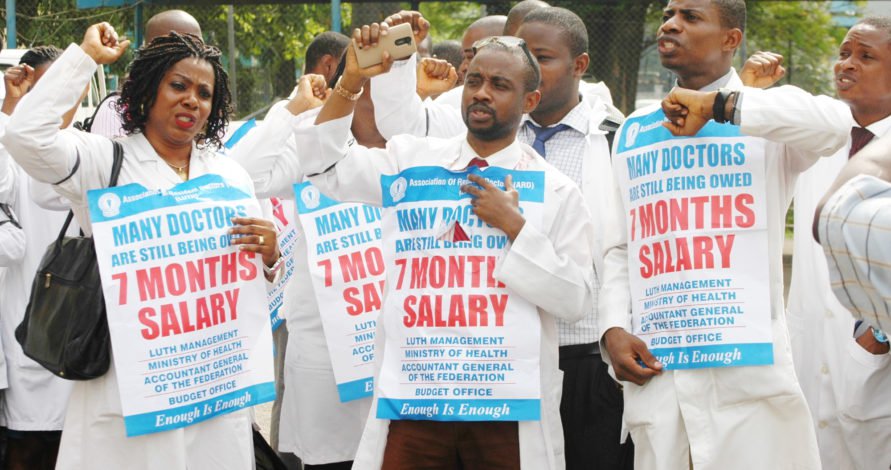LAGOS, Nigeria — A bleak scenario has unfolded across Nigeria’s tertiary health facilities as a nationwide total and indefinite strike by the National Association of Resident Doctors, NARD, has left hospitals crippled, patients abandoned, and the nation’s healthcare system on the brink of collapse.
The strike, which affects major hospitals such as Lagos University Teaching Hospital, LUTH, National Orthopaedic Hospital, Igbobi, Lagos, NOHIL, Lagos State University Teaching Hospital, LASUTH, and others nationwide, has been marked by strict adherence to the call to action.
Patients in desperate need of care have found hospital corridors empty, with only a few Consultants and House Officers providing minimal services.
A recent announcement by the Federal Government of a 25 per cent salary increase failed to quell the doctors’ discontent.
“Though the government has done something, we vehemently reject that paltry 25 percent,” said Dr. Omogbolahan Adenuga, Vice President of LUTH-ARD. “In this job, you must be mentally okay before making decisions on people’s lives. We are saying that what they are offering cannot take us home again.”
Despite desperate pleas from patients and their families, many have been turned away, even those in need of surgery.
Jennifer, a patient referred to LUTH for surgery, told journalists on Sunday, July 30, 2023, “Many of these patients paid so much to be here but were sent home unattended. I pray that the government answers them fast. Nigerians are suffering.”
A nurse at LUTH, speaking anonymously, revealed that the wards were largely emptied over the weekend.
“We are not admitting new patients, and those in the wards have been discharged. Many of them were discharged over the weekend. If you have patients please tell such patients to go to other hospitals, not LUTH. The doctors are on indefinite strike, and no one knows when they will return to work,” she warned.
Patients and families, left to navigate the chaos, have reacted with a mix of gratitude for the few medical staff working and frustration at the high cost of transportation and unavailability of care.
Mr. Ugo, whose mother was diagnosed with breast cancer, expressed his helplessness: “I was advised to take her to another hospital, and they could not get another appointment since doctors were on strike.”
The NARD leadership remains resolute, emphasising that the strike will persist until the government meets their demands, including a review of the Consolidated Medical Salary Structure.
Emeka Orji, the National President of NARD, confirmed that the Federal government had not yet reached out for negotiation.
The standoff between the medical community and the Federal Government raises concerns about the future of healthcare in Nigeria, where the strike has not only highlighted the tensions over pay but has also exposed the fragility of a system where the voices of the medical fraternity seem lost amid bureaucratic inertia.
For many Nigerians, the acute lack of access to essential medical care is the immediate concern.
As doctors insist on directing patients to the President for their medical treatment, the situation in hospitals nationwide is anything but humorous; it’s a crisis that demands urgent attention.







